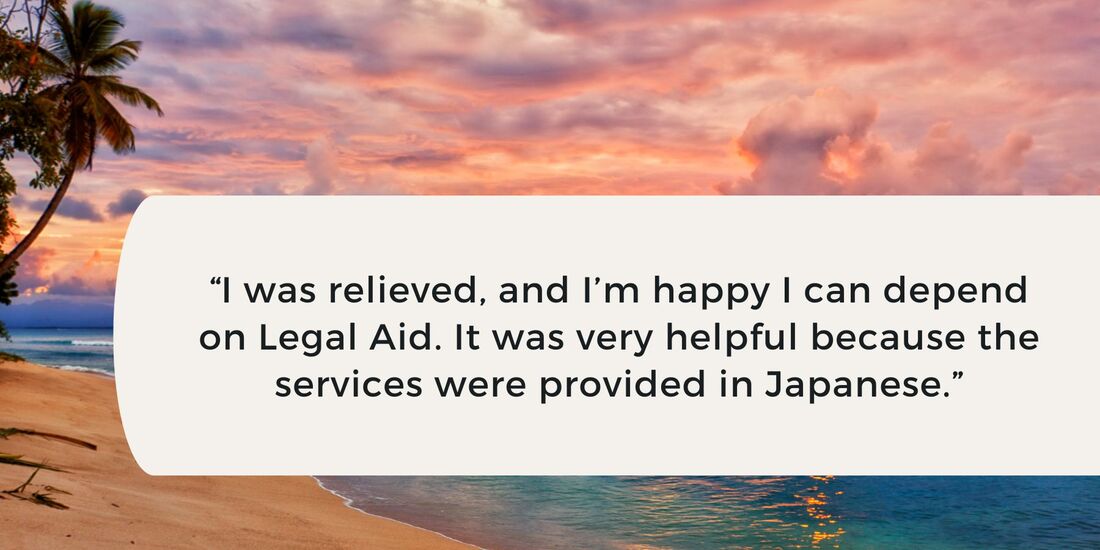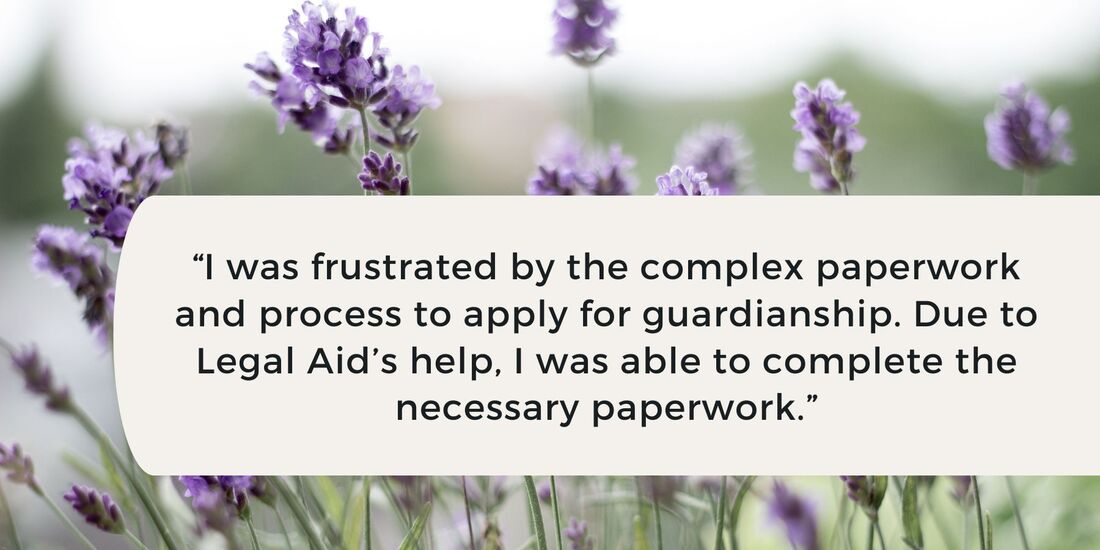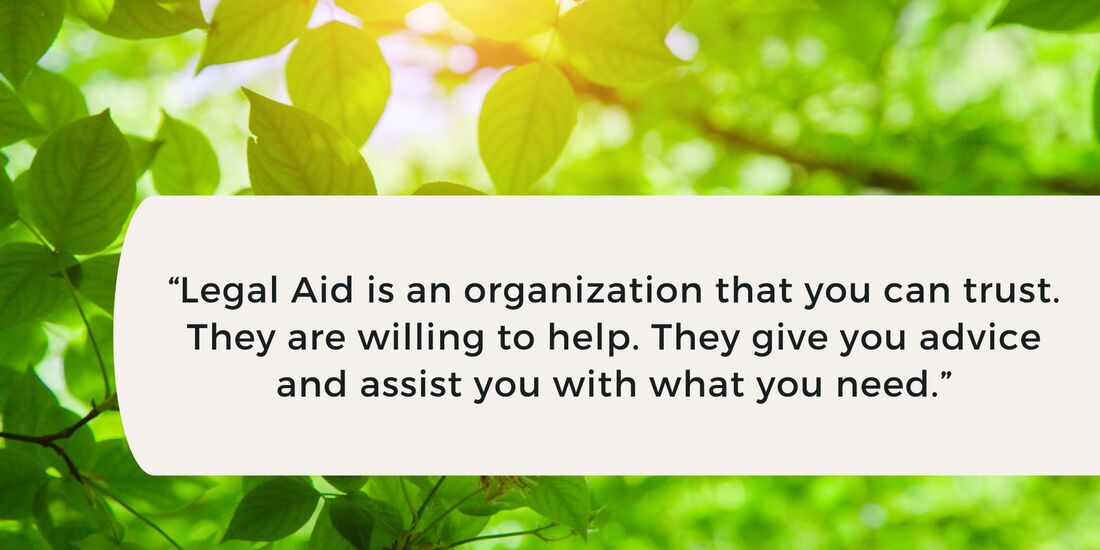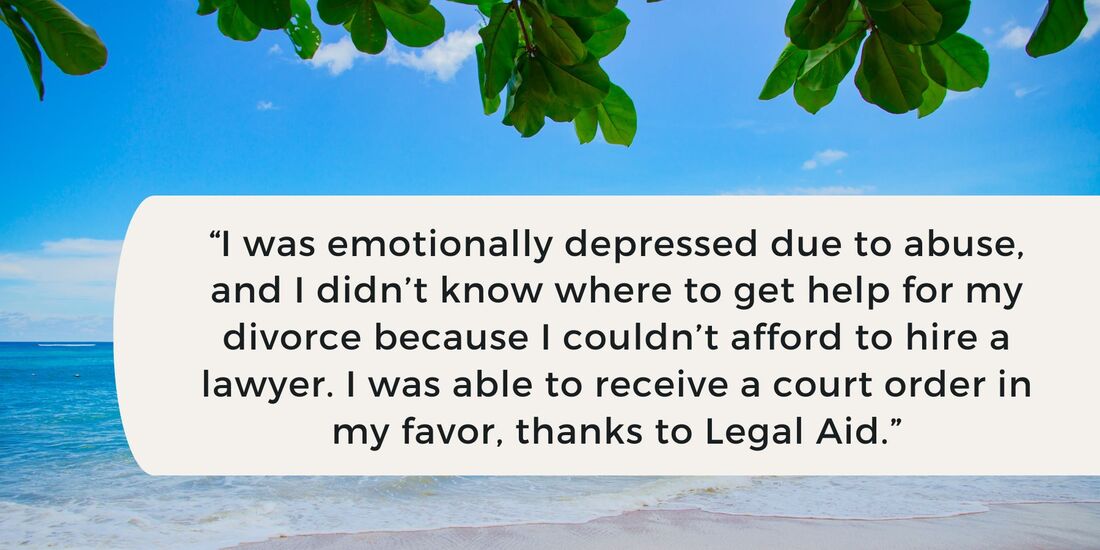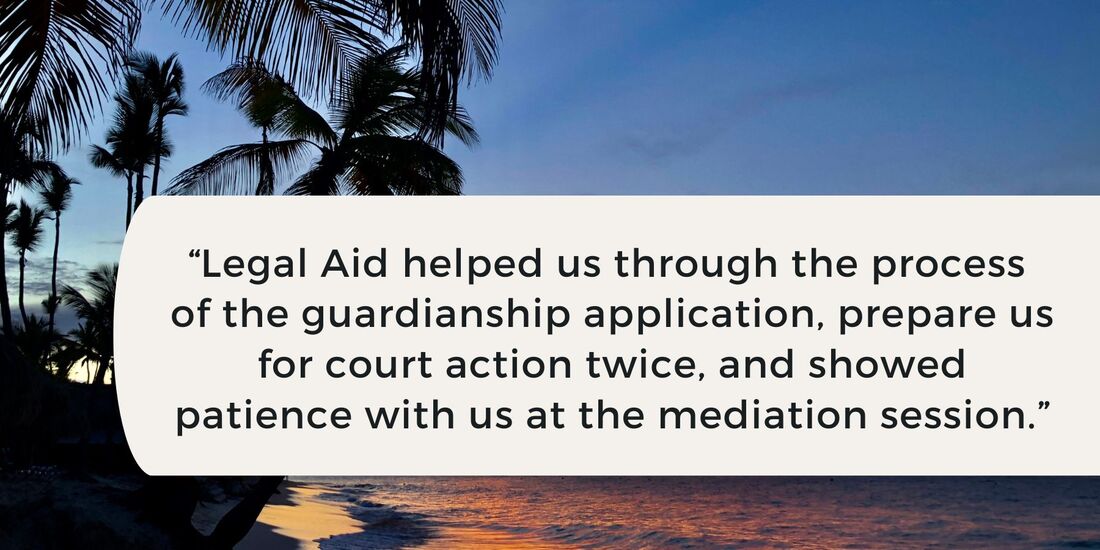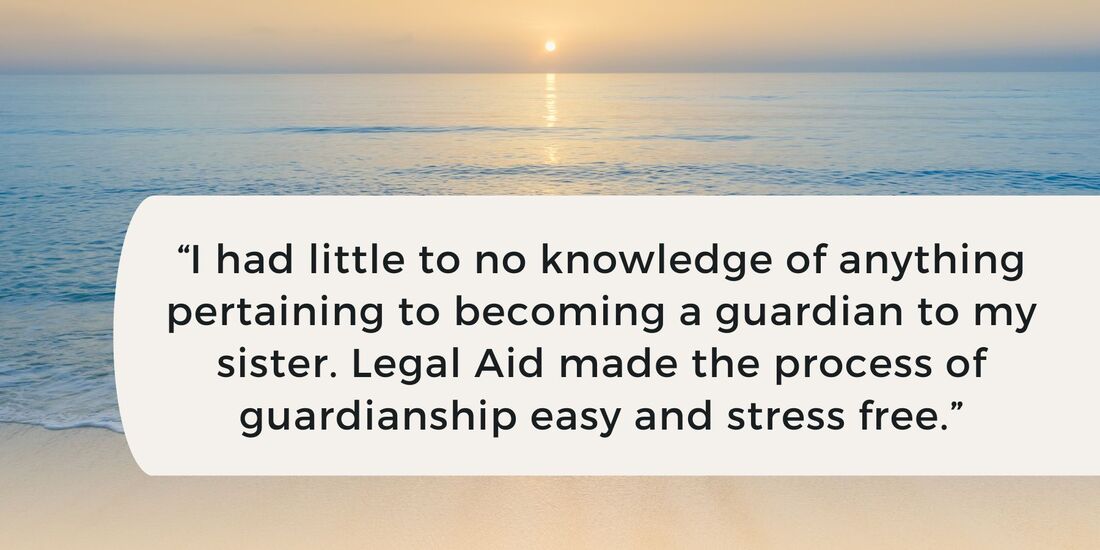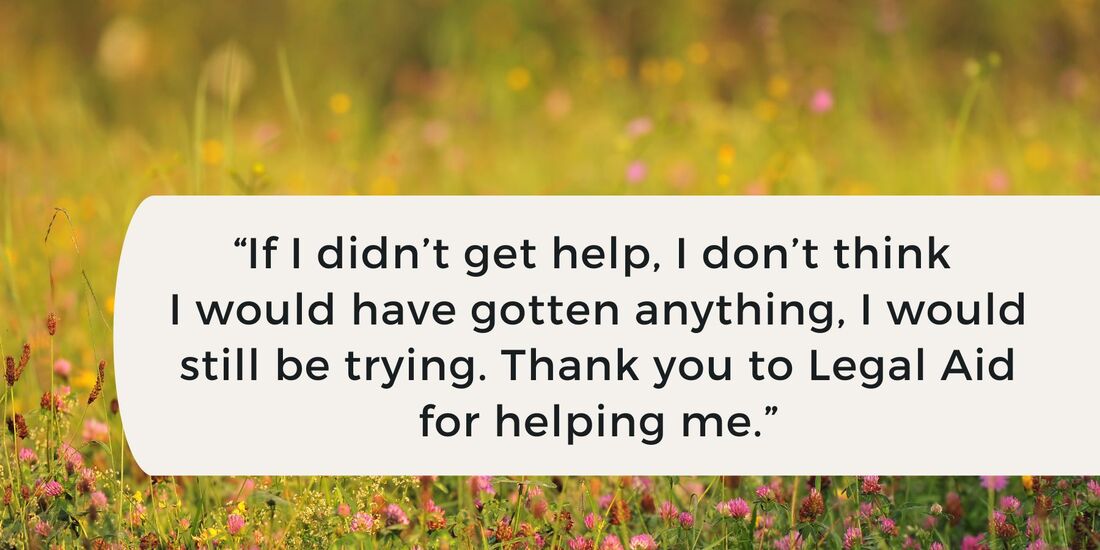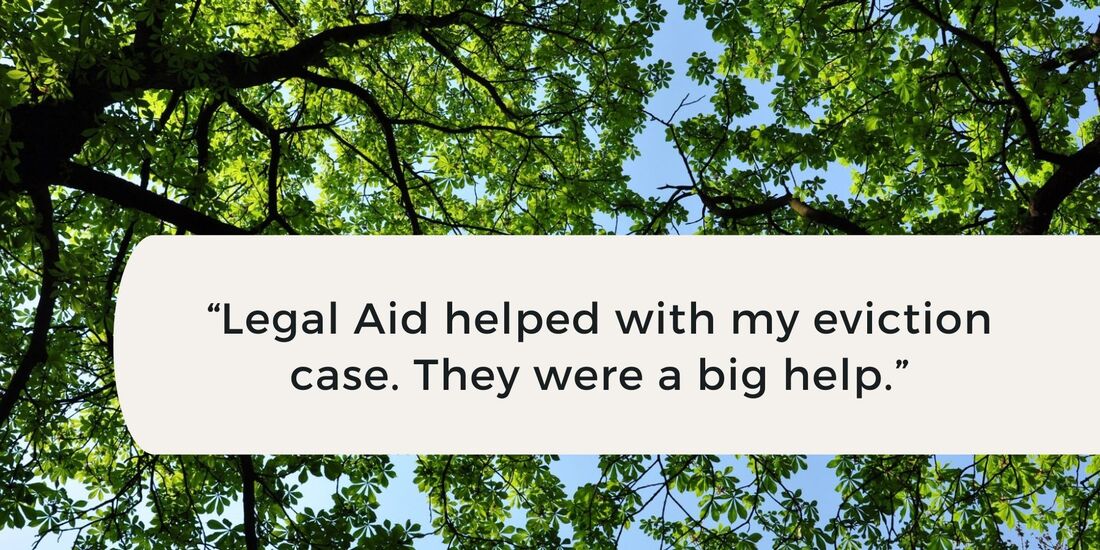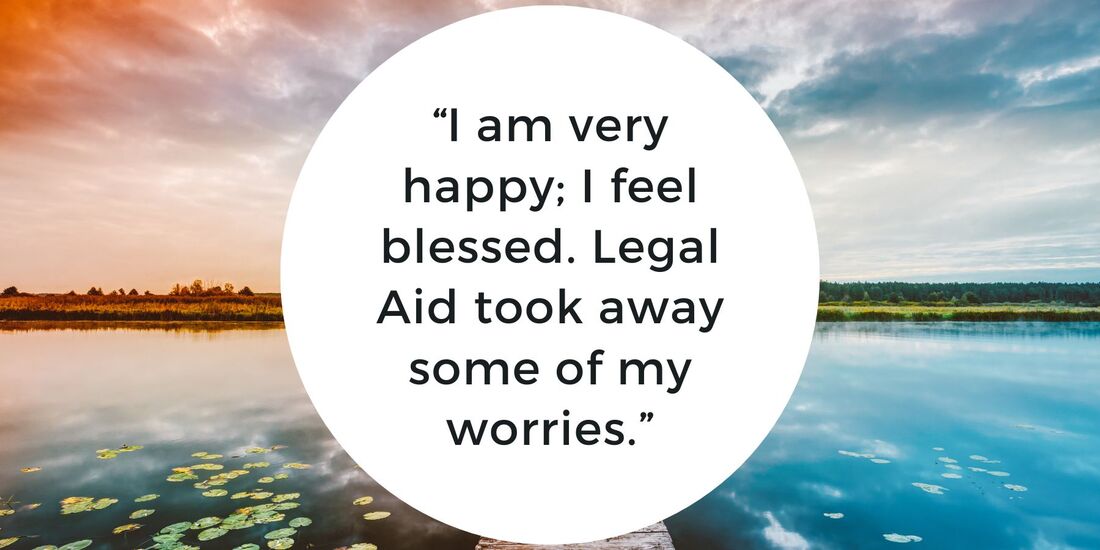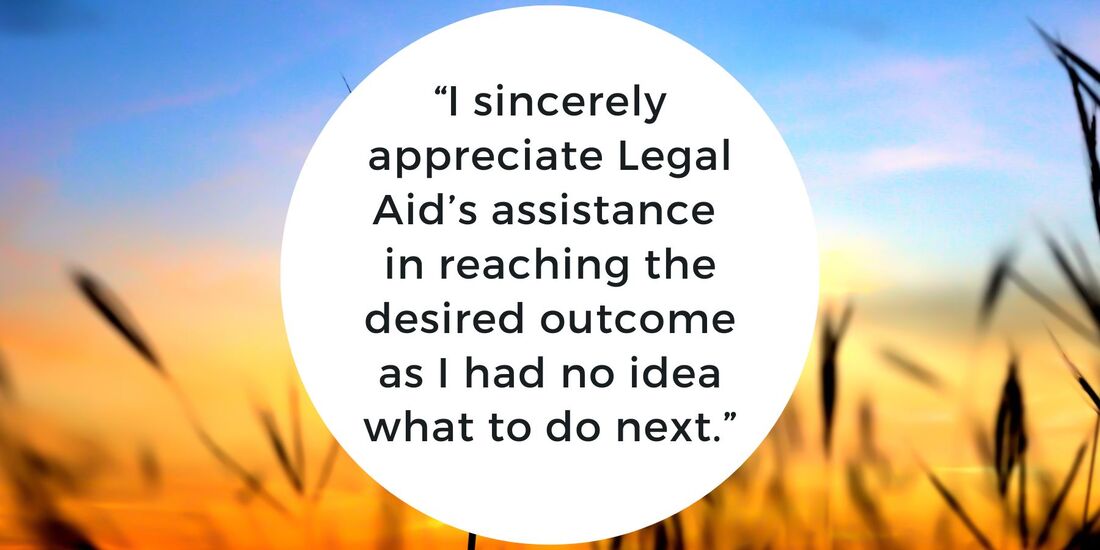|
Tokie Ozaki, a 70-year-old Japanese national, tried to renew her green card on her own.
She has been trying for the last three years, and was getting frustrated, disappointed and worried. In those three years, she was asked to take biometric tests (fingerprinting) three times and to provide criminal records for the past 10 years (she doesn’t have any). Finally, her friends suggested to call Legal Aid. How long did it take for us to get the green card? Three months. Legal Aid Staff Attorney Makoto Messersmith from Hawaii Immigrant Justice Center (HIJC) initially contacted the immigration office to process the application on Tokie’s behalf. The response was slow as well, so Makoto asked for help from Senator Mazie Hirono’s office. Within weeks, USCIS called Legal Aid and confirmed that they were issuing Tokie’s green card. “Usually, we try everything first, and if nothing is happening, we ask for the Senator’s help,” said Makoto. A few weeks after that, Tokie’s new green card was in her hands. “I was relieved, and I’m happy I can depend on Legal Aid,” wrote Tokie in Japanese. “Attorney Makoto was very kind and explained the situation very well. It was very helpful because the services were provided in Japanese. Thank you so much, Attorney Makoto.” “I just can’t imagine how stressful it must be for Tokie,” said Makoto. “I felt so bad for her, for years of waiting. I’m glad I can help and that she got the green card. She deserves it. She complied with everything.” *Hana, a Native Hawaiian from Hilo, has been watching over her grandnephew since he was born. She loved him like her own.
When the boy left for California with his mom, Hana’s niece, she missed him, but she understood – her niece had to seek treatment for substance abuse. This situation did not last long, however. After a year, Hana and her husband picked up the boy from California, as his mother's treatment was not going according to plan. His mom decided to stay in California; she was unable to take care of him. Hana was heartbroken for the child, but a power of attorney allowed her to make decisions for his welfare. After it lapsed in February 2022 when her grandnephew was only three years old, Hana reached out to Legal Aid for help with obtaining a guardianship. The child needed dental work done, and Hana had to be declared his legal guardian to independently authorize medical or health care. It had become necessary to pursue a guardianship because his mother had been difficult to reach for consent for the various dental and other medical procedures he needed. “I was frustrated by the complex paperwork and process to apply for guardianship,” said Hana. “I was concerned that it may not be awarded because I didn’t understand the process or what was needed for my situation. I didn’t want to have to repeat the process.” Hana was anxious that without any kind of authority, she couldn’t get medical care for her grandnephew. Why not adoption? “The mother was only okay with guardianship. It preserves her parental rights,” said Hawaiʻi Island Managing Attorney Scott Shishido, Hana’s primary advocate. “She did not want to lose her parental rights to the child. If she wants to modify or terminate the guardianship, she still has standing do that.” Legal Aid drafted the petition and represented Hana at the hearing. The judge approved the guardianship! “Hana was very gracious,” said Scott. “She was happy for her grandnephew and that she can now authorize the care that he needed. It is a pleasure to work with clients who are trying to do what they need to care for children in their family." “They helped me understand the guardianship process and requirements,” said Hana. “Due to Legal Aid’s help, I was able to complete the necessary paperwork, secure the needed signatures, and successfully get a guardianship for my loved one.” Guardianship cases constitute between 10 and 15 percent of total client cases on Hawai‘i Island. Navigating the legal system – or life situations – is challenging as it is. Imagine the difficulty of someone with Limited English Proficiency (LEP).
This is when an interpreter and free civil legal help becomes invaluable. Huan, 80, knows this firsthand. His native language is Cantonese, and he knows very little English. Because of this, and his age, his doctor encouraged getting an Advance Health Care Directive with his daughter’s help. She has been serving as Huan’s interpreter during medical visits. “He’s very healthy but they are worried that as he ages, he’ll need more help,” said Legal Aid Paralegal Rachael Reynon, Huan’s primary advocate. Huan also has an insurance plan, which might affect his ability to receive Medicaid. In preparing for his future, he wanted to appoint his daughter as Agent on a Power of Attorney to help in managing his financial affairs, too. “The insurance provider said that if he wanted his daughter to assist him in managing his account in English, they would need a Power of Attorney to move forward,” Rachael said. “We are seeing more and more clients choosing this option to overcome language barriers.” “I want some legal help due to my old age and language barrier, but legal help is normally very expensive,” said Huan who always relied on his daughter to manage his affairs. “Luckily, Legal Aid was able to help me at no charge.” Additionally, it was difficult for Huan to travel to our Downtown Honolulu office. Through the help of our grants, we were able to travel to his residence to execute his documents. “It is important to provide interpretation service to those who need it,” said Rachael. “We would not be able to provide effective legal assistance without the help of interpreters. Huan is fortunate to trust his family member to serve as his interpreter.” For other clients, Legal Aid offers interpretation services (in-house and outsourced) in Chuukese, Marshallese, Tagalog, Ilocano, Japanese, Mandarin, Cantonese, Spanish, and many more. “Legal Aid is an organization that you can trust,” said Huan. “They are willing to help. They give you advice and assist you with what you need. They make it very convenient for their client.” “These documents can be simple and cost-effective, but they are very powerful and should be handled with careful consideration,” said Rachael. “Your agent should respect your wishes and have your best interest in mind. Thankfully, in this case, Huan trusts his family to support him. I’m glad that our clients can come to Legal Aid and receive services in a language they understand.” After 30 years of marriage and two children who are now adults, *Maria wanted to get a divorce. Her husband had been mentally and verbally abusive, she said, and it was inflicting damage on her emotional health and well-being.
“I was emotionally depressed due to abuse,” said Maria. She was a cancer survivor with a lot of the abuse occurring during the time of her ordeal. Her husband told her that she was worthless, she recalled, and that he hoped she would die. He called her “crazy.” Maria realized that she couldn’t be in that situation anymore. However, she also couldn’t afford a lawyer. On top of that, when her husband found out that she wanted a divorce, he threatened to relocate to Japan. Maria needed a lawyer ASAP before her husband left the country. Good thing she found out about Legal Aid and that we offer free civil legal services to low- and moderate-income individuals like her. In June 2023, Legal Aid Staff from our Family Law Unit quickly processed all of Maria’s papers to file a motion for Pre-Decree Relief. A motion for Pre-Decree Relief is used “to request temporary relief while a divorce case is pending.” In Maria’s case, she wanted to ask for spousal support. “When she first contacted us, she was very worried. She wanted a divorce but her husband was threatening to leave her without the support she needed. That is why she came to us,” said Legal Aid Paralegal Trisha Warner. “She’s retired and living on a fixed income. She also had some savings she was living on but she needed spousal support to fill in the gap.” With the joint effort of Trisha and Legal Aid Family Law Managing Attorney Makia, the papers were served to Maria’s husband before he left Hawaii in August. At the hearing, the judge agreed that the spousal support was something Maria needed. Her motion for Pre-Decree Relief was approved! “Legal Aid helped me to get all necessary information, with kind words and reassurance, which was a comfort to me,” said Maria. “They explained procedures clearly with speedy responses regarding my questions. Their documents were quick and accurate. I was particularly impressed with the professionalism of Makia and Trisha. I got good caring advice.” Relieved with her first victory, Maria is currently gathering more information and documents as she gets ready to pursue her divorce. “Maria really needed that assistance. It was good to be able to help her. She was very happy and thankful,” said Trisha. “She was thankful that Makia and I listened to her story and gave her the guidance she needed.” *Florence is 80 and she recently became a “mother” to two teenage boys.
This senior grandmother found herself battling to protect her two grandkids, ages 13 and 15, from an abusive situation. Her son, sadly, had been the source of harm. The youngest of the boys is in middle school, the eldest in high school. Since they were born, they had lived in two homes - with their parents on weekdays, their grandparents on weekends. After the boys disclosed the abuse that was happening in their home, the court approved a Temporary Restraining Order (TRO) against their father and mother, who were having drug problems and mental health issues. Their dad did not feed them some days; a can of beans was all they had for a week. The abuse was not only physical, but also emotional. The boys were afraid of their parents, especially their father. Eventually, the eldest dropped out of school due to anxiety. The Court ultimately granted an Order for Protection (“OFP”) that will last until the boys turn 18 years old. The next best step was guardianship. This was when Florence and her husband *Robert, heartbroken and scared for their grandchildren, reached out to Legal Aid for help in April 2023. “With the OFP in place, the parents can’t take care of the kids. They are left with no legal guardian,” said Legal Aid Attorney Jamie DeMello, who represented them in court. “The guardianship fell on Florence and Robert because the children’s two older siblings who are in college didn’t have the capacity to take care of them.” The boys’ parents disapproved, however. They wanted the OFP removed in exchange for the guardianship. Or else, place the children in foster care. “They came to the hearing and asked the judge to deny the petition for guardianship,” said Jamie. “The judge told them an OFP already exists, they can’t even take care of the children. The OFP is in effect until they turn 18.” After the first hearing, mediation took place to resolve the issues, but it was unsuccessful. In the second hearing, the judge approved and granted the guardianship to Florence and Robert! “They were both really relieved. They were happy to tell the boys the good news,” said Jamie. “Initially, when we came out of the courtroom, Florence kept crying because she can’t believe that her son would rather have the kids go to foster care. We had the sheriffs walk the couple to their car because their son was threatening them.” If the petition for guardianship had been denied, the children would have been without a legal guardian and Child Welfare Services (CWS) would be involved. “I’m grateful for the opportunity to argue at both hearings, have the clients testify, and to think on my feet,” said Jamie. “Meeting the boys helped me explain to the court why the guardianship is important. Part of my job is to put something in place so that they are safe and protected. I’m also grateful that I had the opportunity to work with the couple. They were kind and gracious and had good questions.” “We’re old but we’re here to do it,” Florence had told Jamie after the case closed. “We are ever grateful for Legal Aid’s assistance with our guardianship. We are on our way to healing.” The boys are now undergoing therapy and doing much better. They are receiving support from their community. The oldest returned to school; the youngest got some cooking equipment and is making special ramen for the family. He wants to be a chef someday. “These are the cases that I came to Legal Aid to do - the successful outcome makes a difference in people's lives,” said Jamie. “But it’s not going to be all rosy and cheery. In this one, you have a family that is being broken apart even more than they had in the past. So, it is bittersweet.” *Don’s mother unexpectedly passed away in March 2023, leaving him and his sister shaken and feeling lost.
In addition, due to her unforeseen death, there was no plan in place as to who would become the legal caretaker of Don’s sister, a minor. “I had little to no knowledge of anything pertaining to becoming a guardian to my sister,” said Don, who was the obvious choice as the next of kin. He was happy to do so despite financial challenges and the care of a pregnant wife. Don’s 17-year-old sibling especially needed to have a guardian to reinstate the Supplemental Security Income (SSI) benefits she was receiving while their mother was alive, and to receive survivors benefits after she passed away. The disability/SSI benefits stopped because she was a minor. (Their mother had been receiving the SSI for her). Adults and children may be eligible for SSI if they have little or no income/resources, have a disability, blindness, or are 65 and older, while “survivors benefits” are paid to widows, widowers, and dependents of eligible workers. The financial benefit will be useful for Don’s sister who is still in school. It will also ease the burden of responsibility for Don and his growing family. Good thing Don reached out to Legal Aid in August 2023. “He was stressed when we met him in person,” said Legal Aid Paralegal Shaela Marie Garces. “He felt lost and had no direction. It was constantly on his mind. He was concerned in getting it done before the birth of his child.” Without the guardianship papers, Don would be unable to reinstate the SSI and get survivors benefits for his sister. After drafting the initial pleading, Legal Aid Family Law Managing Attorney Makia successfully represented Don in court. Less than two weeks after the hearing, he received the official papers. He is now his sister’s legal guardian! “Don looked relieved, the whole family looked relieved,” said Shaela. “It was taken care of in a timely manner and before his wife gave birth.” “Legal Aid made the process of guardianship easy and stress free,” said Don. “They gave me assistance and helped me gain the knowledge about court and guardianship processes. I was able to get the help and documents submitted in order to complete the guardianship for my minor sister.” Due to Legal Aid's help, Don's sister received $3,000 worth of back pay of survivors benefits and is now receiving her monthly SSI benefits. She is also doing well as a high school senior and resides with him and his family. And, as of this publication, Don's son just turned 3 months old. “It was a joyful feeling that I got to see the outcome of the case,” said Shaela. “Don was pleasant to work with. It is great to see good people see the outcome of their work. It reminded me why I love working with Legal Aid.” There is power in persistence. Never, never, never give up, said Winston Churchill.
Gina persisted with the help of Legal Aid, and now she has a testimony of successfully getting her social security back pay. Gina is a Native Hawaiian from Hawaii Island facing health and disability challenges. She travelled regularly to Oahu for doctor’s appointments. During one of her visits, her doctor suggested that she reach out to Legal Aid for assistance in filing for social security benefits. “I didn’t know what to expect and what to do,” recalled Gina when talking about her meeting with Legal Aid Paralegal Lisa Webb, Kona office. It was her first time seeking Legal Aid’s services. “Lisa has done a great job for me,” said Gina. “She was always there to answer my questions and let me know where I stand.” Gina had applied for Supplemental Security Income (SSI) and Social Security Disability Insurance (SSDI) in July 2020 with Legal Aid’s help. The Social Security Administration (SSA), however, denied her three times, claiming she was not qualified as a disabled person under the rules of SSA. Gina felt helpless and frustrated. “After I got denied the third time, I told Lisa I was going to give up,” she said. “Lisa said to try again. When she pursued it, it went through. She was there since Day One of this process.” Good thing she stayed with Legal Aid and trusted our expertise. “We had a hearing before the administrative law judge in May 2023 and Gina was given a fully favorable decision. I am very happy for her,” said Lisa. “We were able to prove that she had a disability and has been unable to work. SSI finally agreed.” Gina’s SSI back pay from August 2020 to July 2023 was over $21,000 but the State reclaimed half, leaving her over $10,000 worth of back pay. “I feel good to know that I am able to get that back pay,” said Gina. “It’s really going to help me out by taking care of me. With all my complications right now, I don’t know if I am able to get back to work. But sure, I would love to.” In the meantime, there are more battles to be won as SSA calculates Gina’s remaining back pay for her SSDI, which would be an additional several thousand dollars, according to Lisa. (Currently, Gina is getting a monthly SSDI benefit; she doesn't qualify for SSI since the SSDI is greater.) Her resilience paid off. Gina is less worried now. She is happy to be with family on Hawaii Island where her children and grandchildren live. “If I didn’t get help, I don’t think I would have gotten anything, I would still be trying,” she said. “And maybe I would have given up. Thank you to Legal Aid for helping me.” “I was scared, that’s why I reached out to Legal Aid,” said Dennis, a senior facing the daunting prospect of eviction with a mere 45 days to relocate.
He had mobility issues and lived alone in a one-bedroom apartment. His only source of income was from social security benefits. The Landlord wanted to get the property back. According to law, he is allowed to evict a tenant as long as the tenant is on a month-to-month rental agreement and is given 45 days to relocate. In addition, the landlord wanted Dennis to pay a half-month’s worth of back rent, damages to the unit and cleaning fees. Frustrated and confused, Dennis connected with Legal Aid for assistance in January 2023. He needed more time to vacate the property. Legal Aid Staff Attorney Casey Shoji and Paralegal Pua Marquez from the Housing Unit worked as a team, intervening and skillfully mediating with the landlord’s attorney to extend the eviction timeline. “The notice to vacate posed several issues because Dennis had limited income and mobility,” said Pua. “It was difficult for him to move out in such a short time. He was scrambling for help.” “His future was unclear, he didn’t know where he was going, he didn’t know how to move himself,” added Casey. “He told me he couldn’t lift things, too. That’s why he was scared. Dennis didn’t know what was going on and what was going to happen to him.” A two-month extension was granted, plus a few more days, as negotiated by Casey. During this time, Dennis’ case worker secured a place for him in the McCully area. Movers came one weekend and transported as much as they could in the new apartment. Casey also successfully negotiated with the landlord’s attorney to dismiss the back rent, and cleaning, damage and attorney fees. They agreed. The case was dismissed! “Good thing we have resources to help Dennis. That is the key,” said Casey. “Dennis was really happy; he was really grateful. It was like a weight was lifted off of his shoulders. I remember I went to get something signed by him. He looked like he was living comfortably in his new place. He looked pretty good and comfortable in his unit, chilling out with his friends.” “The help Dennis received from Legal Aid was definitely above and beyond,” Pua added. “Evictions can be challenging for our clients, but we genuinely care. We cared for his situation and that helped him calm down a lot. I was happy with how things ended for him.” “Legal Aid helped with my eviction case,” said Dennis. “Thank God for Legal Aid. They were a big help.” Denise had been navigating the complex and often daunting world of Social Security benefits since 2015.
Her disabilities prevented her from working full-time, and her initial attempts to get Supplemental Security Income (SSI) and Social Security Disability Insurance (SSDI) were met with challenges and setbacks. “I was discouraged and extremely frustrated,” Denise said. “I was worried that nothing was going to come out of my efforts because it was taking so long.” Legal Aid Paralegal Lisa Webb, Kona Office, took on Denise’s case, patiently going through several hearings and appeals. Lisa refused to give up until the result was favorable. “I was denied four times!” recalled Denise, who was grateful for Lisa’s unwavering commitment. “She worked with me, that made a difference. She helped me until something came out of it. Even after getting denied, Legal Aid took it right back.” “Denise has been able to manage a part-time job only for the past couple of years,” said Lisa. “That is also what I believe changed the administrative law judge’s mind: when I opined that we do not argue that she can't do some work but that she cannot do full time work.” The outcome was nothing short of remarkable. In June, Denise was granted over $38,000 in SSI back pay from May 2015 through August 2021 (when she got married), providing her with a financial lifeline that she desperately needed. This allowed her to meet basic needs such as food, shelter and clothing, as well as pay for necessary medical bills. The next battle is to get her disability benefits. “Since the judge deemed Denise disabled back in April 2015, she will be eligible for the SSDI so she is filing a new application,” said Lisa. “If she is awarded the SSDI, she will get that back pay as well.” It has been a long road for Denise but she is optimistic, especially with the help of Legal Aid. “We won the last time and Lisa is still with me,” she said. “I almost gave up but even when I wasn’t on it, she was on it. I know that staying with Legal Aid is going to help me because we got through one and it was successful.” “I am very happy; I feel blessed,” Denise added. “Legal Aid took away some of my worries. Just this happening, the successful outcome and the way it happened, it gave me more hope in Legal Aid.” How does one acquire a Hawai‘i driver’s license? Start an application at DMV.
This seemingly simple task had been an ongoing source of frustration for Patti, as she had made multiple unsuccessful visits to the Department of Motor Vehicles (DMV) on Maui. The core issue was missing ID documents from another state. She needed to get those first and get a Hawai‘i State ID before she could even start applying for a driver’s license. “I found myself at a dead end,” said Patti, a resident of Kihei, Maui. “The DMV would not accept my current ID documentation although they previously did in 2010.” Patti, who was also battling cancer, was extremely frustrated, worried and anxious. She didn’t know what to do, she said. She lived by herself and had no one to turn to. Good thing she reached out to Legal Aid. “She called our intake hotline,” said Paralegal Kim Tiempo, Maui Office. “She’s been trying to get her driver’s license for over a year. She needed a Hawai‘i ID to get her benefits, especially since she is going through cancer. Her Oregon license was also about to expire.” Kim took swift action, reaching out to the courthouse in Oregon to secure the necessary documents on Patti’s behalf. “She had to prove who she was,” said Kim. “It was challenging because Patti’s mother had changed Patti’s name and then Patti got married and had another name change. She had to go to court to tell them that she was who she was.” The process of getting Patti her ID had previously left her feeling disheartened, but with Legal Aid’s intervention, she finally had someone who knew the law and who was also her advocate. In March 2023, Patti successfully obtained her Hawai‘i ID. “We helped her prove her identity and this validated who she was,” said Kim. “We just had to know who to write to and we were able to do that for her.” Patti felt relieved. With her ID, she could apply for a driver’s license. More importantly, she can sign up for public and medical benefits. “Sadly, she is not well today, but this victory has made her life more stable,” Kim said. “I think her quality of life would not be as good and she probably wouldn't be able to access services if she didn’t have a State ID.” “Legal Aid helped me with my ‘next steps,’" said Patti. “Kim could not have been more professional in her dealings with me. I sincerely appreciate her assistance in reaching the desired outcome as I had no idea what to do next. It was a pleasure working with her.” |
Categories
All
Archives
May 2024
|
|
Home
Get-Help Resources Fair Housing hawai‘i immigrant Justice Center Volunteer JOBS Contact Us Join Our Email List 
Translate this site into
another language |
|
|
THE LEGAL AID SOCIETY OF HAWAII DOES NOT HELP
WITH CRIMINAL OR PERSONAL INJURY MATTERS.
PLEASE CONSULT A PRIVATE ATTORNEY.
computer safety
Websites you visit may be viewed by someone else later.
always clear your browsing history after searching the web.
consider using a public or friend’s computer if you are concerned about someone viewing your browsing history.
Websites you visit may be viewed by someone else later.
always clear your browsing history after searching the web.
consider using a public or friend’s computer if you are concerned about someone viewing your browsing history.
Legal Aid Society of Hawaii is a recipient of federal funding. Legal Aid does not exclude, deny benefits to, or otherwise discriminate against any person on the basis of race, color, national origin, disability, sex, or age in admission to, participation in, or receipt of the services and benefits under any of its programs and activities.
How to file a complaint: If you believe you have been subjected to discrimination by Legal Aid, there are 3 ways to file a complaint with the U.S. Department of Health and Human Services, Office for Civil Rights:
Click here for more information.
GRIEVANCE REGARDING DENIAL OF SERVICS OF QUALITY OF SERVICES
ANY CLIENT OR APPLICANT CAN FILE A GRIEVANCE TO COMPLAIN ABOUT A DENIAL OF SERVICES OR QUALITY OF SERVICES PROVIDED BY THE LEGAL AID SOCIETY OF HAWAII.
CLICK HERE FOR MORE INFORMATION.
How to file a complaint: If you believe you have been subjected to discrimination by Legal Aid, there are 3 ways to file a complaint with the U.S. Department of Health and Human Services, Office for Civil Rights:
Click here for more information.
GRIEVANCE REGARDING DENIAL OF SERVICS OF QUALITY OF SERVICES
ANY CLIENT OR APPLICANT CAN FILE A GRIEVANCE TO COMPLAIN ABOUT A DENIAL OF SERVICES OR QUALITY OF SERVICES PROVIDED BY THE LEGAL AID SOCIETY OF HAWAII.
CLICK HERE FOR MORE INFORMATION.
Legal Aid Society of Hawai‘i ©2020 All Rights Reserved

